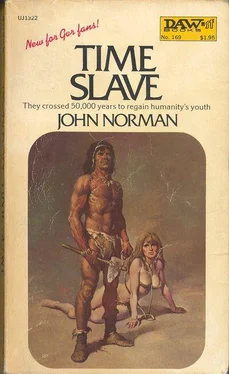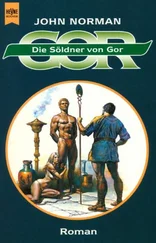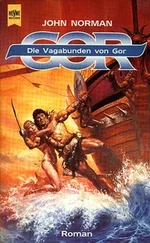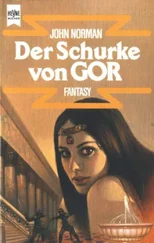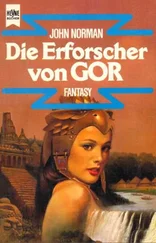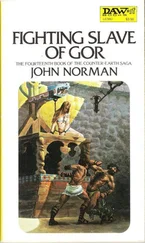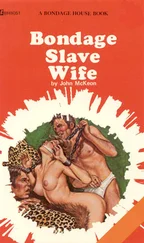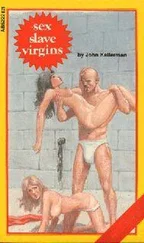“In your veins,” said Hamilton to the boy, “flows the blood of hunters and masters. Make them proud of you.”
He regarded her.
“Seek the stars,” she said to him.
“I will,” he said. He turned about to leave, and then turned back, to look again at Hamilton. “Good-bye,” he said.
“Good-bye,” whispered Hamilton.
“Nils!” cried the girl.
He had turned away and was walking away, crossing the wide pavement. He moved rapidly. There were tears in Hamilton’s eyes. The walk was not unlike that of Tree.
“Nils!” cried the girl. Then she turned, furiously, to Hamilton. “What have you done?” she cried.
“I have met my son,” said Hamilton, “one who is of the Men, a son of sons of sons. And I am the mother, and I have seen him. The hunters are not dead.”
“Nils!” cried the girl. He did not turn.
“My father,” said the girl, “will not understand. What of the business? He is holding a position for him!”
“Your father,” said Hamilton, “is not your master.” She looked after the young man. “He is,” said Hamilton.
“How will we live!” wailed the girl.
“As he wishes,” said Hamilton, indicating the young man, small now in the distance.
“I love him,” cried the girl. “I will not lose him! I love him!”
“He is sovereign,” said Hamilton. “If you would be his, you will be his on his terms, and his alone.”
The young woman fled from Hamilton’s side, pursuing the young man.
Far away, she saw her, stumbling, reach him. He turned to regard her. Hamilton saw the girl, it seemed as natural as the falling of rain or the turning and opening of a flower, kneel before him, placing herself, and her pride, at his feet. She saw the young man lift her gently to her feet, and, holding her, regard her. Then he removed his belt and looped it about her throat, more than once, and then, tightly, under her chin, buckled it. She wore about her throat his belt, as a collar marking her his, as a symbol of his authority over her. Then their lips met.
“Good-bye,” whispered Hamilton, “my son.”
Hamilton stood beside the dusty grave in the bush country. It was not more than four hundred yards from the compound. There was grit in the air, carried by the wind. There was a quite simple marker, a white board some two feet in length, some one by six inches, driven into the dry earth at the head of the grave. Some stones were set about the board, reinforcing it in the ground. Gunther had, in German script, small, precise, written on the board the name ‘Herjellsen’. William, below it, in Roman script, once the language of gladiators and Caesars, had added an inscription.
Hamilton threw her head back and stood beside the grave, fists clenched. “Herjellsen! Herjellsen!” she cried. “There was another child! There was another child!”
“I think he knew,” said William.
Hamilton looked at him.
“Before he died,” said William, Gunther standing silently behind him, “he opened the chamber.”
“It had to be open,” said Hamilton. There had been no doubt in her mind that it would be open. She had seen, in Denmark, that there had been another child.
“Herjellsen,” said the large black, Chaka, “gave me this for you.” From his shirt he drew forth a yellow envelope. Beside the grave Hamilton opened it. She read it, and gave it to William and Gunther, that they, too, might read it.
“Gunther,” said Hamilton.
He looked down at her.
“Find a woman, Gunther,” said Hamilton.
Gunther shook his head.
“The hunters are not dead, Gunther,” said Hamilton. “In your veins, as in those of others, flows the blood of hunters.”
“No,” said Gunther. “Not in mine.” He shook his head, sadly.
“You are wrong, Gunther,” she said.
“I died,” said Gunther, “thousands of years ago.”
“You are not dead, Gunther,” said Hamilton. “It is only that you, like many others, do not know you are alive.”
He looked at her strangely.
“There is work to be done,” said Hamilton. “Herjellsen would have expected it.”
“I can no longer think, no longer work,” he said.
“Find a woman,” said Hamilton. “Find the strongest, the most intelligent, the finest, the most beautiful, the noblest, the most proud, and then, in your arms, make her your slave, and breed great children on leer.”
Hamilton looked up into the eyes of Gunther.
“Your seed,” said she, “and that of William, and Chaka, and mine, and the others, that of us all, will meet a thousand years from now among the stars.”
“It was the intention of Herjellsen,” said William.
“There are possibilities,” said Gunther. “Some are practical with modest technological developments. Others are interesting also.”
“We do not know, as of today,” said William, “if the light barrier may be broken.”
“We know,” said Gunther, “that velocities beyond the speed of light have been obtained by certain particles under laboratory conditions. This is a small beginning, and perhaps will have few practical consequences. It does, however, demonstrate that velocities greater than those of light are feasible.”
“Dimensions, too,” said William, “exist other than those in which we commonly think.”
“We may not find the answer,” said Gunther, “but if we do not find it, or this century does not find it, someday, somewhere, somehow, if only men continue to search, and care, it will be found.” He looked at Hamilton. “I will be one of those who searches,” said he to Hamilton.
“You see, Gunther,” she said, “the hunters live.”
“I have some interesting ideas on extensions of temporal topologies,” said William. “Doubtless little will come of it, but it might be worth exploring.”
“There will never be another brain like Herjellsen’s,” said Gunther, “the brilliance, the madness, the capacity, incomprehensible, to touch the shores of foreign realities.”
“Herjellsen did not expect to be always with us,” said Hamilton.
“We are alone now,” said Gunther.
“We have ourselves,” said William.
“Herjellsen,” said Gunther, “would have liked to see the stars.” He looked down at the grave.
Then the party turned about, and returned, slowly, to the compound.
Behind them they left the grave, with its simple marker. It bore the name Herjellsen. It bore, too, a brief inscription, which William had added, `Ad Astra.’
At the gate to the compound, Hamilton turned to William. “What is the meaning of `Ad Astra,’ “she asked him.
William smiled. “To the stars,” he said.
Hamilton lifted her head. She rose to her feet, and stood in the high grass, among the stones in a circle.
The Horse People had, in the months intervening, added other stones. Some they had placed on others. Many of these stones were large, and had, apparently, been brought, doubtless on rollers, from long distances. Many of the stones, now, were higher than Hamilton’s head.
Then she walked from the place. Two men of the Horse People saw her. They cried out. She paid them no attention. They did not touch her, though, for a time, they followed her. Then they returned to the circle of stones. Looking back, Hamilton saw them dancing about its edges.
She continued on, not again looking back. About her thighs she had wrapped the brief deerskin skirt of the women of the Men, which she had worn when she had returned to Rhodesia and the compound. She had not brought supplies with her, nor a compass. She knew her way. She knew she could live off the land. She was a woman of the Men.
Tree turned her roughly about, her back to him. Hamilton stood very straight. She felt the collar, of thongs, and teeth, and leather, and shells looped several times about her neck and then, behind her neck, knotted tightly. He turned her about, to face him.
Читать дальше
